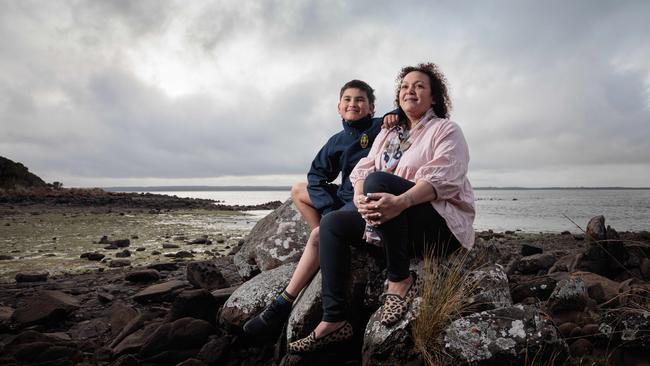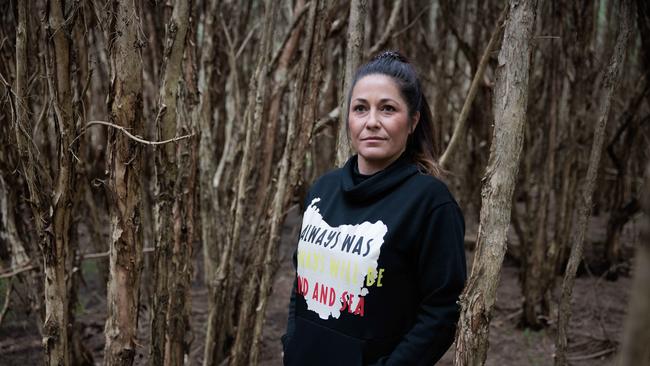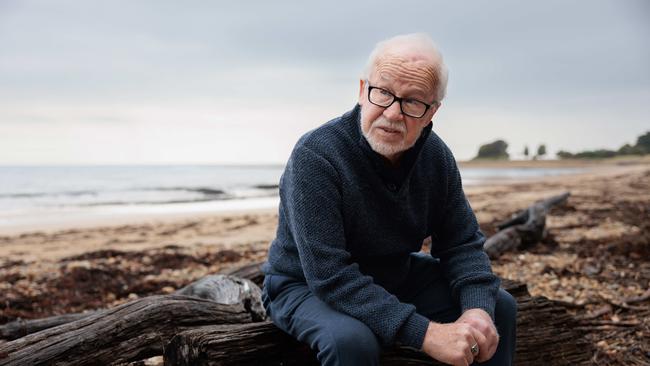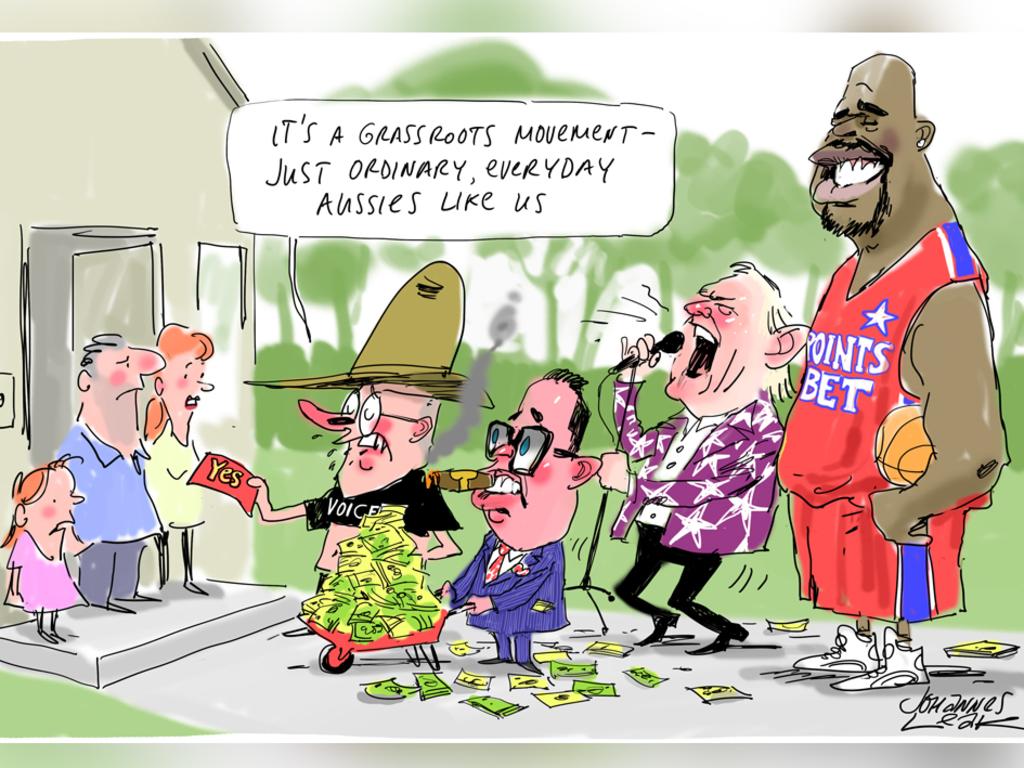Indigenous power struggles endanger Yes vote in key referendum state of Tasmania
The Yes campaign in Tasmania is being cruelled by power struggles between warring Indigenous groups whose opposition to the voice is driven by fear their rivals will control it.

The Yes campaign in Tasmania is being cruelled by power struggles between warring Indigenous groups whose opposition to the voice is driven by fear their rivals will control it.
Yes campaigners are most confident in the left-leaning south, but No sentiment is fuelled by bitter conflict between Indigenous groups, particularly in the more conservative north and northwest.
The longstanding peak Tasmanian Aboriginal Centre, associated with prominent family groups, is battling what it claims are attempts by “tick-a-box” Indigenous people to gain influence and control over land and organisations.
Hostility between the TAC and newer, regional-based Aboriginal corporations is most acute in the northwest, where the Circular Head Aboriginal Corporation has growing influence. The two groups are often at loggerheads – over Aboriginal identity, voting rights and land access – but are in furious agreement on one issue: the voice is no good.
Each has a range of reasons but a common theme is concern the other mob will gain control of the voice and disenfranchise them. Both would rather government consult with them and their elders directly than via a voice from which they felt excluded.
It is a divide that threatens to fell the voice campaign, as Yes insiders increasingly see Tasmania and South Australia as key to getting the majority of states required to pass a referendum.
In the west of the state in Smithton, CHAC chairwoman Selina Maguire-Colgrave said the Tom Calma-Marcia Langton model of just two voice representatives per state did not sit well with the divisions in Tasmanian Aboriginal politics. “In Tassie, we are still fighting for recognition as Aboriginal people – the TAC and the land council don’t recognise many of CHAC’s members,” Mrs Maguire-Colgrave said.
She said TAC figures had abused and boycotted CHAC members on state committees, providing a glimpse of what the voice would be like.
“We see Marcia Langton’s map and the plan for two people from Tasmania – it would be the complete downfall of CHAC should that happen,” she said.
“It (only two Tasmanian voice representatives) would cut our voice off. That’s why we’re voting No. It’s divisive.”
Mrs Maguire-Colgrave is calling for detail about how many voice members will be elected and how. She believed it was culturally inappropriate to expect Tasmania – a land of disparate Indigenous nations and groups – to have as few as two voice members. “Each community in Australia has its own issues – what’s happening here in Circular Head is different to the needs in outback WA,” she said.
“So how are either of our voices heard by just two people sitting in an office in the capital city? You’ve got to talk to each community.”
She said TAC assertions that CHAC members were not Aboriginal were wrong and motivated by that organisation’s attempts to retain control.
Krystelle Jordan, a TAC member and its treaty negotiation group, said: “I wonder, especially here on the northwest coast, how many of these (voice) seats will include Aboriginal people – and not just people who tick a box and claim to be Aboriginal.”

Devonport-based Ms Jordan said there were “too many unknowns” about the voting system, the number of voice seats and eligibility. “If these people do manage to sit on these advisory committees, it then becomes another white advisory committee,” she said. “So that advice will not come from our elders, who it should come from. It’s going to come from people who quite literally only have to tick a box.”
She conceded some TAC members may vote Yes, despite the strong No stance of elders such as Michael Mansell, but believed most would vote No.
“We have been advising the government for 250 years and we’re sick of it,” she said. “My elders have stood staunch in the struggle to get our land back through sit-ins and marches through the streets of lutruwita (Tasmania),” Ms Jordan said.
“It’s my elders whose voice matters and my elders have never marched the streets for an advisory committee. The voice is more of a step back in our view. It’s a waste of a referendum. Treaty should come first and foremost.”
The situation is disappointing for Indigenous Tasmanians backing the Yes case, who include members of groups from Bruny Island in the south to Six Rivers Aboriginal Corporation in the north.
Albert “Sammy” Howard, a Devonport-based Six Rivers member, said he jumped ship from the No to the Yes camp, believing the voice would deliver constitutional recognition and an advisory body that could be ironed out by parliament.

“I realised it’s just two simple questions,” Mr Howard said. “If you believe Aboriginal people were here before colonisation, vote Yes. If you also believe that Aboriginal people deserve to have a voice in things that concern them, vote Yes. That’s it. The rest of it is to be decided by the Australian parliament of the day. Also, if the Yes vote doesn’t get up, it will put treaty negotiations back 20 years.”
Rodney Dillon, of Bruny’s Weetapoona Aboriginal Corporation and the First Nations Referendum Working Group, backs a Yes vote, believing the voice “can make significant change” and that a No vote would set back Aboriginal rights.
He said increasing the number of voice representatives would be up for discussion. “But two (voice) members is two more than we have now,” Mr Dillon said. “Let’s have the vote, get this thing through – and then there’s a few things like (number of positions) that we could talk about.”






To join the conversation, please log in. Don't have an account? Register
Join the conversation, you are commenting as Logout